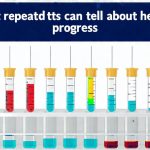The concept of “gut healing” has exploded in popularity alongside growing awareness of the gut microbiome’s profound influence on overall health. However, this often leads to unrealistic expectations about timelines for improvement. Many individuals embarking on a gut-healing journey are dismayed when they don’t experience immediate results and begin to question whether their efforts are working or if something is fundamentally wrong. The truth is that genuine, lasting gut restoration isn’t usually a quick fix; it’s often a gradual process reflecting the complexity of the digestive system and the myriad factors contributing to its imbalance. It requires patience, consistency, and an understanding that healing isn’t linear – setbacks are normal and part of the journey.
The notion that gut health can be “fixed” within weeks or even months is often perpetuated by marketing surrounding supplements or restrictive diets. While these interventions can offer symptomatic relief, they rarely address the underlying causes of gut dysfunction. A truly effective approach considers the whole picture – diet, lifestyle, stress management, and potentially addressing any underlying medical conditions – all of which take time to influence positively. This isn’t about dismissing short-term strategies; it’s about recognizing that long-term gut health is built on sustainable habits rather than quick hacks. The duration needed for substantial improvement varies dramatically from person to person, making a one-size-fits-all timeline impossible and potentially discouraging. Considering whether can intolerances be temporary or permanent is also important when navigating these timelines.
Understanding the Complexity of Gut Dysfunction
The term “gut healing” encompasses a wide range of issues, from mild digestive discomfort to more serious conditions like Inflammatory Bowel Disease (IBD). The underlying causes are equally diverse – chronic stress, poor diet, antibiotic use, infections, food sensitivities, and genetic predispositions can all play a role. Each individual’s situation is unique, making it difficult to predict how long healing will take. A simple case of mild bloating due to occasional dietary indiscretions will naturally resolve faster than someone dealing with years of leaky gut syndrome resulting from chronic inflammation and multiple rounds of antibiotics.
- The gut microbiome, a complex ecosystem of trillions of microorganisms residing in the digestive tract, is central to gut health. Restoring microbial balance can be a lengthy process as it involves repopulating beneficial bacteria while reducing harmful ones. This isn’t merely about taking probiotics; it’s about creating an environment where good bacteria thrive through dietary changes and lifestyle adjustments. Understanding healing gut inflammation through diet is a great starting point.
- Gut permeability, often referred to as “leaky gut”, occurs when the intestinal lining becomes compromised, allowing undigested food particles, toxins, and pathogens to enter the bloodstream. Repairing this barrier requires consistent support for its integrity, not just a temporary fix.
- Chronic inflammation is a common thread in many gut issues. Reducing inflammation through dietary changes, stress reduction techniques, and addressing underlying health conditions is essential but takes time and commitment. If you suspect can caffeine worsen gut inflammation may be playing a role, reducing or eliminating it could be beneficial.
Essentially, “gut healing” isn’t about eradicating symptoms; it’s about addressing the root causes of dysfunction and rebuilding a healthy digestive system. This fundamental shift requires sustained effort and patience, potentially extending the timeline for noticeable improvements to months or even years. It’s also important to remember that ‘healing’ doesn’t necessarily mean complete eradication of all symptoms – it can often mean managing them effectively and improving overall quality of life. Making space for healing when your gut flares up is critical during this process.
Factors Influencing Healing Timelines
Several key factors determine how long gut healing will take for an individual. These aren’t isolated elements but interconnected influences that significantly impact the process. Firstly, the severity and duration of the initial gut dysfunction play a critical role. Someone with years of undiagnosed IBD or chronic antibiotic use will require more extensive restoration than someone experiencing mild digestive issues due to stress. Secondly, individual physiology – genetics, metabolism, immune function, and overall health status – all influence healing capacity. What works for one person may not work the same way for another.
Thirdly, adherence to a comprehensive gut-healing protocol is paramount. This includes consistent dietary changes (such as eliminating trigger foods), incorporating stress management techniques (like mindfulness or yoga), prioritizing sleep, and addressing any underlying health conditions. Sporadic efforts are unlikely to yield significant results. Finally, the quality of support received – whether from a healthcare professional, registered dietitian, or functional medicine practitioner – can significantly impact outcomes. Having expert guidance ensures that interventions are tailored to individual needs and progress is monitored effectively.
It’s also vital to manage expectations realistically. Healing isn’t always linear; there will be periods of improvement followed by setbacks. These setbacks aren’t necessarily signs of failure but rather opportunities to reassess the protocol, identify potential triggers, and adjust accordingly. Viewing gut healing as a journey rather than a destination can help maintain motivation and prevent discouragement. It’s important to remember that can gut sensitivities cause panic attacks? may also be connected to your overall wellbeing during this time.
The Role of Diet in Gut Healing
Diet is arguably the most influential factor in gut health. A diet rich in processed foods, sugar, and unhealthy fats can exacerbate inflammation and disrupt the microbiome, while a nutrient-dense diet supports healing and restoration. – A phased approach to dietary changes is often more effective than drastic restrictions. This might involve:
1. Eliminating obvious trigger foods (e.g., gluten, dairy, refined sugar)
2. Focusing on whole, unprocessed foods
3. Gradually reintroducing foods to identify sensitivities.
Fermented foods, such as sauerkraut, kimchi, and yogurt (if tolerated), can introduce beneficial bacteria into the gut microbiome but should be introduced cautiously and gradually. Prebiotic-rich foods, like onions, garlic, asparagus, and bananas, provide nourishment for these good bacteria, helping them thrive. Avoiding inflammatory foods is equally important; this includes processed meats, artificial sweeteners, and excessive alcohol consumption.
Beyond specific food choices, mindful eating plays a crucial role. Eating slowly, chewing thoroughly, and paying attention to hunger and fullness cues can all improve digestion and reduce gut stress. Hydration is also essential; adequate water intake supports optimal digestive function and helps move waste through the system. Dietary changes aren’t always easy, but they are fundamental to long-term gut health.
Stress Management and Gut Health
The gut and brain are intimately connected via the gut-brain axis. Chronic stress can significantly disrupt this connection, leading to altered gut motility, increased inflammation, and a compromised microbiome. – The impact of stress on gut health is bidirectional: gut dysbiosis can also contribute to anxiety and depression. Techniques for managing stress are therefore integral to gut healing.
These techniques may include:
1. Mindfulness meditation
2. Yoga or tai chi
3. Deep breathing exercises
4. Spending time in nature
5. Regular physical activity.
Prioritizing sleep is also critical, as sleep deprivation exacerbates stress and negatively impacts gut health. Establishing a regular sleep schedule and creating a relaxing bedtime routine can promote restful sleep. Addressing underlying emotional issues through therapy or counseling may also be beneficial, particularly if stress stems from trauma or unresolved conflicts. Recognizing that stress management is an ongoing process rather than a one-time fix is essential for sustained improvement.
The Importance of Professional Guidance
While self-management strategies can be helpful, seeking guidance from a qualified healthcare professional is often necessary for optimal gut healing. A functional medicine practitioner, registered dietitian specializing in gut health, or gastroenterologist can provide personalized recommendations based on individual needs and circumstances. They can help identify underlying causes of dysfunction, develop a tailored protocol, and monitor progress effectively.
- Diagnostic testing may be recommended to assess gut permeability, microbiome composition, food sensitivities, and nutrient deficiencies. These tests can provide valuable insights into the specific issues contributing to gut dysfunction.
- A healthcare professional can also help navigate potential complications or setbacks and adjust the protocol as needed. They can differentiate between normal fluctuations in symptoms and signs of a more serious issue requiring medical intervention.
- Don’t underestimate the value of having a supportive partner on your gut-healing journey. This could be a practitioner who understands your specific challenges and provides encouragement along the way, or even a support group where you can connect with others facing similar issues. It’s possible can gut healing reverse food sensitivities with professional guidance.
Ultimately, understanding that gut healing is often a marathon, not a sprint, is crucial for success. It requires patience, consistency, and a holistic approach that addresses the underlying causes of dysfunction while supporting overall health and well-being. While timelines vary significantly, prioritizing long-term habits over quick fixes will yield the most sustainable results. Can cold weather trigger gut sensitivity is another factor to consider when evaluating your healing journey.


















